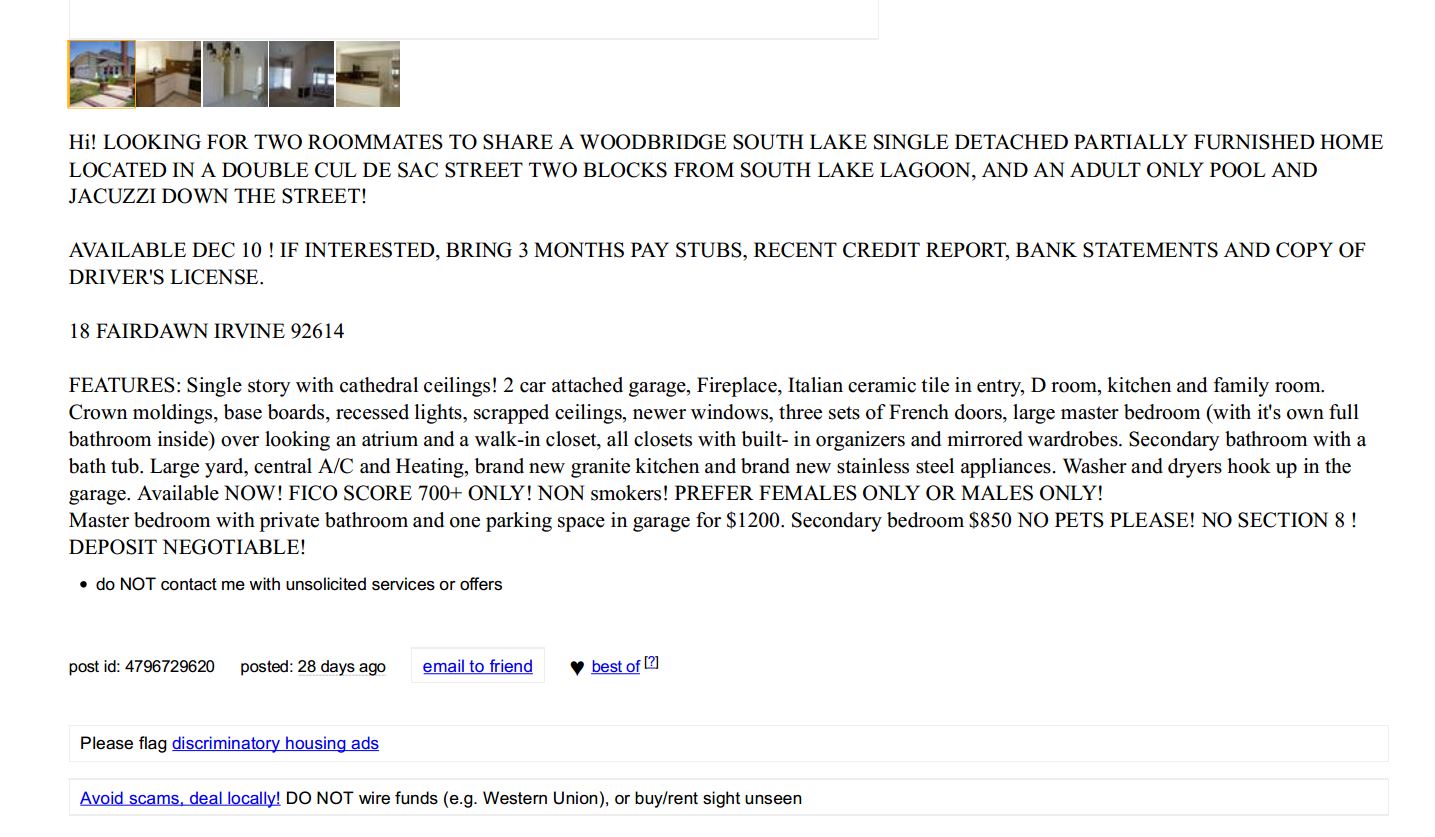I am looking for a room and I came across one Craigslist Ad. Please find the image below for the Ad:
As can be seen above, there are lot of things that a landlord is demanding from a prospective tenant which I understand is good to filter some people who don't have good credit score. I visited the place two times and currently two students are living over there. I was ready to show all the documents but I really felt uncomfortable in showing my bank statements. Showing my bank statement means showing my full bank balance to a stranger.
On the other hand, I asked the landlord two times in two different emails to tell me little bit about himself. He somehow managed to ignore my questions. When I asked information about the landlord, he replied and asked me whether I am going through a Realtor ? He then said the following :
"You would have to do exactly what I am saying here... Your realtor would with your permission get your credit report and e mail it to he Agent representing the owner. I this case I AM the owner so you do not have to go through all those steps... I am the owner acting as a principal."
Also, when I asked one of the student living over there about the landlord, he didn't know anything about him except his first name. I finally cancelled the deal as I said no to show my bank statements.
Although a landlord has right to set his own rules for his property and there are lot of articles available on how to find a good tenant, could anyone tell me in this situation, what should a prospective tenant do to get some sort of information regarding the landlord. I mean a tenant would also like to feel comfortable with whom he is planning to sign a lease. What if the landlord's background is not clean or if there is something wrong with the landlord? Please advise.
